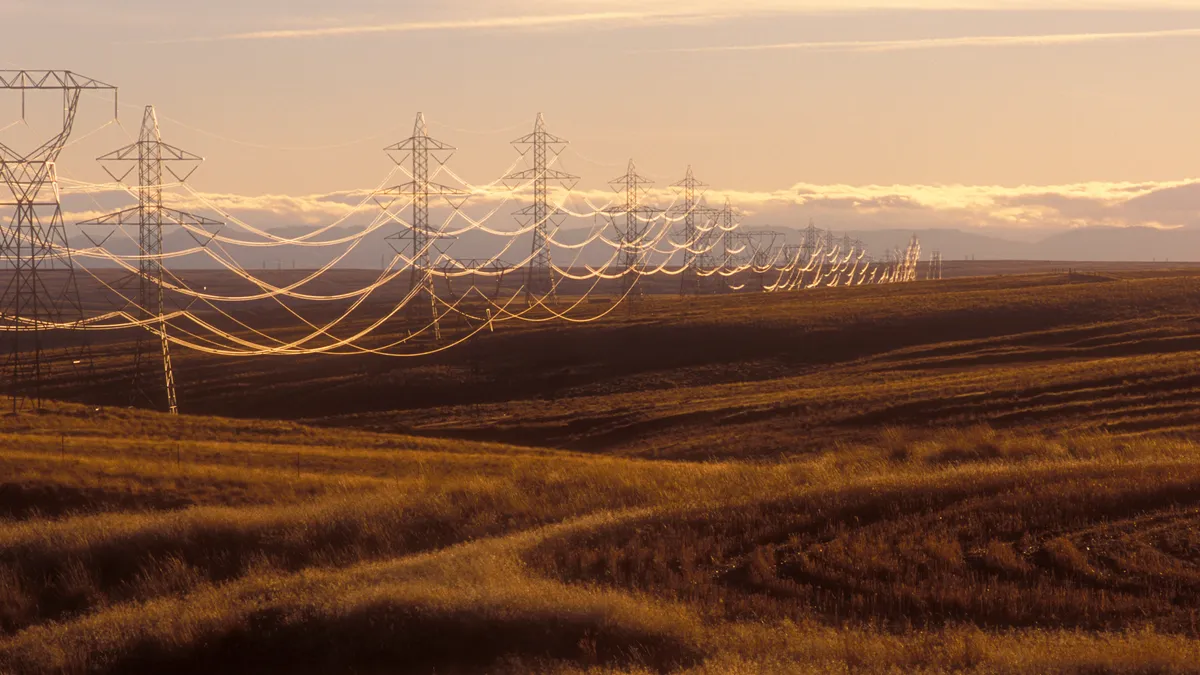Dive Brief:
-
The Federal Energy Regulatory Commission’s proposal to reform regional transmission planning and cost allocation is “fatally flawed,” partly because it lacks clear Congressional authorization needed to survive the Supreme Court’s major questions doctrine, a group of 17 Republican attorneys general said Monday.
-
FERC’s proposal effectively seeks to reshape the U.S. generating mix in favor of renewable energy resources and spread the related transmission costs to states uninterested in renewable generation, the AGs said in comments filed at FERC.
-
The AGs’ filing consists of anti-renewable energy talking points disguised as legal arguments, Ari Peskoe, director of the Harvard Law School’s Electricity Law Initiative, said in an email Tuesday. “The AGs misrepresent FERC’s legal authority and seem unfamiliar with how FERC regulates interstate transmission service,” Peskoe said.
Dive Insight:
On Monday, FERC received about 90 reply comments — potentially the last step before the agency issues a final rule — on the commission’s proposal to revise its rules governing regional transmission planning and cost allocation.
The proposal, approved in April on a 4-1 vote, aims to encourage long-range transmission planning, which can boost grid reliability while saving consumers money, FERC Chairman Richard Glick said at the time. It is also designed to help bring renewable resources such as wind and solar online, he said.
Citing FERC Commissioner James Danly’s dissent seven times, the Republican AGs, led by the Texas and Utah attorneys general, argued FERC lacks the authority to approve its proposal.
“There are multiple statutory, evidentiary, and policy-based problems with this proposal to profoundly reshape electric grid regulation,” the AGs said.
The AGs contend that national-scale energy grid regulation is a “major question” because of its massive economic consequences and because it “implicates” the jurisdictional divide between state and federal regulatory authority.
Pointing to the Supreme Court’s June decision over the Environmental Protection Agency’s Clean Power Plan, which aimed to limit greenhouse gas emissions from power plants, FERC needs clear Congressional direction to move forward with its plan, according to the AGs.
“FERC, however, has no statutory authority at all — much less ‘clear congressional authorization’ — to revamp the energy grid’s mix of generation resources writ large,” the AGs said.
FERC’s transmission proposal is a “backdoor” attempt to regulate the U.S. generation mix, according to the AGs.
The proposal would impermissibly allow states to discriminate against each other by letting some states require other states to pay for their energy policies through the proposed cost allocation framework, the AGs said.
Also, the proposal would foster less-reliable renewable energy, which runs counter to FERC’s mission to enhance grid reliability, according to the AGs.
The AGs’ arguments are flawed, according to Harvard Law School’s Peskoe.
“They claim that FERC has ‘no authority to make rate determinations on a generic, national level,’ but this is precisely how FERC has regulated utilities for the past 30 years,” Peskoe said.
Also, their attempt to transform FERC’s “significant but legally ordinary” rulemaking into a “major question” fails, according to Peskoe.
FERC has clear legal authority over transmission planning, Peskoe said, noting the AGs cite an appeals court decision upholding the commission’s Order 1000 governing transmission planning and cost allocation, but misrepresent the court’s holdings.
The filing was signed by the attorneys general from West Virginia, who led the EPA lawsuit, as well as Texas, Utah, South Carolina, Ohio, Nebraska, Louisiana, Kentucky, Alabama, Georgia, Mississippi, Arkansas, Montana, Florida, Kansas, Oklahoma and Alaska.














